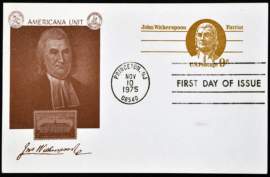
Children's Right in the Supreme Court

Popular In Constitution
Purpose Of Lifetime Appointment And Pros And Cons Enumerated Powers Bicameral Legislature Background Article 3 Of The Constitution We The People 1st Amendment Who Wrote The Constitution Judicial Review Equal Protection Clause 5th Amendment 10th Amendment Three Fifths Compromise
Federal courts have battled with a myriad of concerns upon determining definitive legislative statutes in which to encompass both the rights, as well as the parameters, of minors. The subject of children’s rights is one of glaring complexity due to the obligation of the Supreme Court to protect the rights and interests of the citizens that it serves.
Children’s rights activists have asserted that from a sociological standpoint, children - minors who cannot be tried as adults in Federal courts - simply cannot be held to the same legal or moral standards of their adult counterparts. However, there exist instances in which Federal courts have found certain crimes committed by minors to be so egregious and methodical, Justices of ruling in those Supreme Courts have motioned for minors to be tried as adults. Yet, despite these isolated incidents, Federal courts have established a three-tier labeling process in which to quantify children convicted of crimes.
Delinquents are considered to be children who have committed crimes whose convictions are contingent on the fact that the minor cannot be punished as an adult. Should an adult have committed a similar crime, they would be punished according to Federal court legislation. However, due to a child’s status as a minor, they are afforded extenuating circumstances, such as the option of juvenile detention instead of prison.
Neglected or abused children are minors who have sustained some degree of abuse - emotional or physical - over the course of their upbringing. Federal courts treat crimes committed by abused or neglected children on a case-by-case basis, taking into consideration the abusive environment assumed to contribute to the crime committed. Children in need are considered to be children requiring complete rehabilitation - both physical or emotional.
In 1965, a 15 year old high school student named John Tinker and his sister Mary Beth donned black armbands to their high school as a form of protest against the Vietnam War. In response, they were both suspended from high school, an action that the Tinkers found to be in direct violation of their constitutional rights, namely, those expressed in the First Amendment. The Tinkers presented their case in front of the U.S. Supreme Court and were awarded the decision due to the fact that their protest was neither violent nor disruptive. The Tinkers were well within their legal rights to express themselves in that fashion.
Children who have committed crimes are brought before juvenile courts instead of Federal courts. However, should the presiding judge of the juvenile court feel that a particular crime committed by a child, regardless the child’s status as a minor, is so heinous in nature the Federal court judge has the option to motion that the child in question be tried as an adult.
NEXT: Civil Rights Act of 1964





















